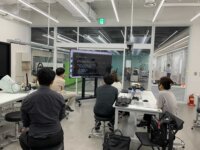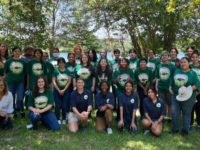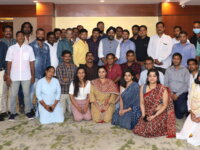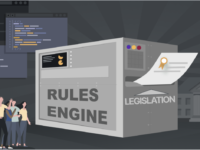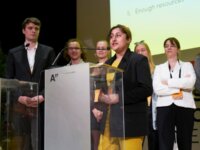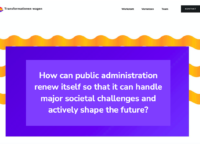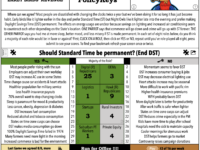Intergenerational fairness—the idea that we should meet the needs of the present without compromising rights of future generations or citizens—is a defining theme of our time. Although most politicians and citizens value fairness, society does not have a way to assess the impact we’re having on future generations and advocate for them. This Framework for Intergenerational Fairness contributes to this. The Framework provides a pragmatic solution, whether as a young citizen, or public…
Innovation Tag: Futures and Foresight
The Center for Hybrid Intelligence (CHI) has with partners such as UN’s AI4Good and the Danish People Climate Summit piloted a new AI powered game, “Crea.visions,” which allows the general public to collaboratively create and reflect on images of possible futures. Such accessible crowdsourcing of the concerns and solutions of the general public on both global and local complex socio-scientific problems could form a cornerstone in participatory democracy in the digital age.
The Future Tech Challenge (FTC) is a pilot initiative led by DPER to connect and collaborate across the wider ecosystem, and engage in transformative innovation by experimenting with, and applying new technology to address pressing public sector problems and opportunities that deliver improved services to the public. Drive innovation using emerging technology, enhance collaboration, meet National strategic priorities, generate knowledge & learnings and develop prototyped solutions.
Small and medium-sized companies often cannot afford investments in Artificial Intelligence technologies. Through AI Friends project, AI became more accessible, affordable, and familiar for entrepreneurs and citizens. AI festival, training, co-working spaces, and pilot solution consulting is operated through the cooperation of universities, research institutes, industries, government, and citizens over the last four years.
The Austin Civilian Conservation Corps (ACCC) began as a pandemic response program to help residents earn income and access green careers, and has evolved into a leading model for equitable, climate-focused workforce development. The ACCC, a collaboration with 10+ City departments and multiple community partners, has provided over 125 living-wage opportunities with supportive services, training, and career pathways for Austin’s underserved residents, and is actively shaping the green economy.
Aapti's the Driver Advisory Council (DAC) represents a new framework for engagement between gig workers and platforms in the ride hail space - a first of its kind initiative in India. The larger aim of this innovation is to create a mechanism for platform governance that focuses on gig workers rights, enabling participatory action and reflexive praxis. To this end, we’ve engaged with public bodies such as India’s NITI Aayog to socialise the DAC and its novel approach to platform work.
The Australian Government - Dept of Finance sponsored a Proof of Concept (PoC) that looked at how Rules as Code (RaC) might be provided as a shared utility that can be used to deliver simpler, personalised digital user journeys for citizens. RaC is the process of taking legislation and regulations and turning them into machine-readable code. It provides many benefits to citizens and government, including greater reuse, less duplication, greater transparency and accessibility of rules.
The Future Mentors programme is a reversed mentoring programme in which a small group of young people mentor a decision maker from their own city about the hopes, dreams, and fears of the young generation regarding the future of their city. The programme is a platform for youth in cities to get into a dialogue with the decision makers and get their concerns and wishes heard. Twenty-six cities around Europe participated in the programme in 2022.
Transformation Wagen - "Daring Transformations" is a learning programme co-developed with and for public servants in the field of Environmental Politics in Germany. Aiming at enhancing tools for public administration to renew itself, it creates capacities and methodologies to handle major societal challenges and foster a transformative mindset to actively shape the future and not just react to what is happening.
We can agree on a lot more than we are led to believe. PolicyKeys is firstly a robust one-page narrative tool built around a ground truth so an AI can assist in predicting support for any public policy solution. PolicyKeys is secondarily a role-playing game to help player's better understand their own internal conflicts, as well as better understand their fellow citizen's differing beliefs—the result is a leaderboard of ideas that have deep and wide acceptance—approaching consensus.

